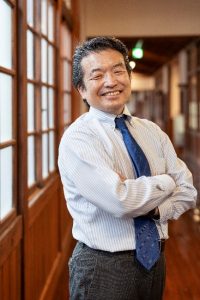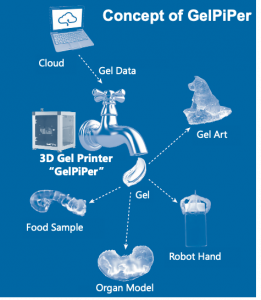 Organization/Department
Organization/Department
Soft & Wet matter Engineering Laboratory (SWEL), Yamagata University
Biography
H. F. completed his Ph.D. in Physics in the Department of Physics, Tokyo Institute of Technology in 1996. After this, he worked as an assistant professor in Tokyo Institute of Technology and Tokyo University of Agriculture and Technology, an associate professor in Hokkaido University, and in April 2009 he was appointed as an associate professor in the Department of Mechanical Systems Engineering at the Graduate School of Science and Engineering, Yamagata University, where he set up the Soft & Wet Matter Engineering Laboratory (SWEL). He was promoted to professor in 2012. He is also a member of the Engineering Academy of Japan and a member, a fellow of the Japan Society of Mechanical Engineers, a board member of the Society of Polymer Science of Japan, and a director of the Japanese Society of Ophthalmology, and a co-chair of the Japan America Frontiers of Engineering (JAFOE) 2018 and 2021.
Title of Talk
Toward 4D Printing of Food, Medical Materials, Gels, and Soft-matter Robots
Abstract
 We at SWEL are advancing “material and process innovation” research, based on 3D, 4D printing of soft matter, where materials and processing are directly connected to digital manufacturing. 3D, 4D printing of soft matter facilitates fabrication of complex shapes and structures of multiple soft matter, and customization of much smart soft products including food, medical devices, gels and soft-matter robots which are not possible conventional subtractive manufacturing technologies. We are working on creating a “digital pipeline for gels” to drive practical applications. That program is called GelPiPer (Figure). Additionally, we are focusing on 4D printing, which relates to the evolution in the shape, property, and functionality of a 3D printed structure with time when exposed to the stimuli. 4D printing can replicate natural physio-mechanical changes over time leading the transition from static to dynamic.
We at SWEL are advancing “material and process innovation” research, based on 3D, 4D printing of soft matter, where materials and processing are directly connected to digital manufacturing. 3D, 4D printing of soft matter facilitates fabrication of complex shapes and structures of multiple soft matter, and customization of much smart soft products including food, medical devices, gels and soft-matter robots which are not possible conventional subtractive manufacturing technologies. We are working on creating a “digital pipeline for gels” to drive practical applications. That program is called GelPiPer (Figure). Additionally, we are focusing on 4D printing, which relates to the evolution in the shape, property, and functionality of a 3D printed structure with time when exposed to the stimuli. 4D printing can replicate natural physio-mechanical changes over time leading the transition from static to dynamic.
